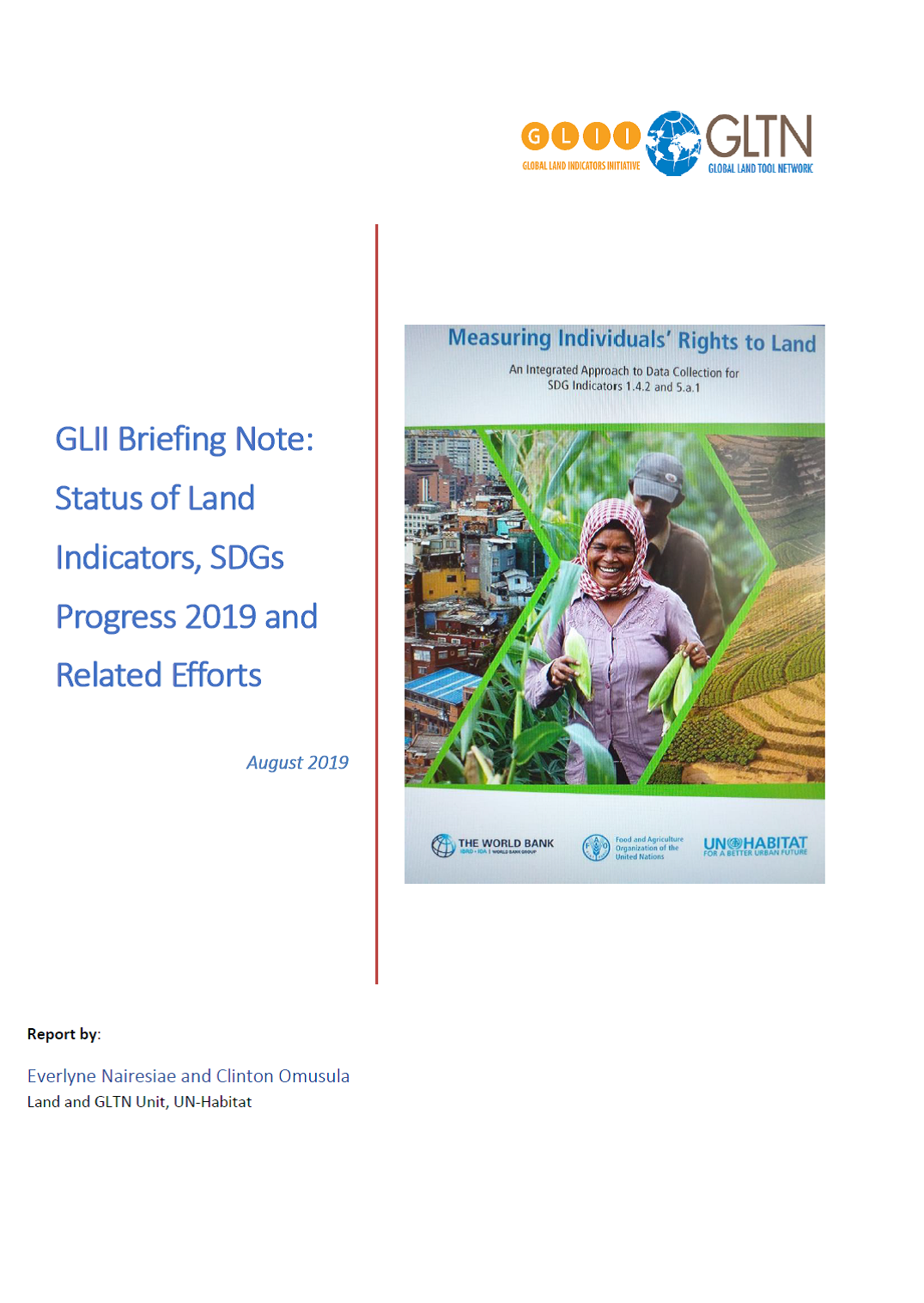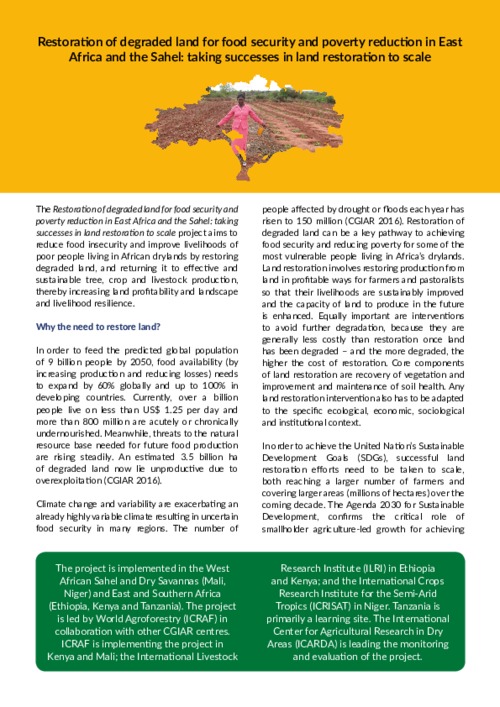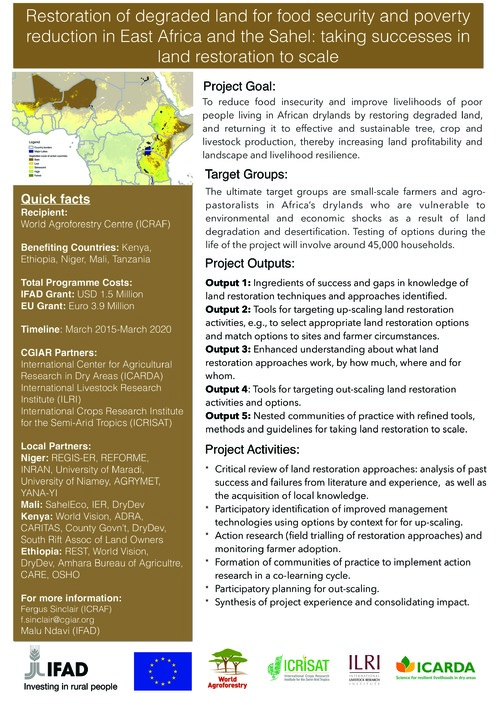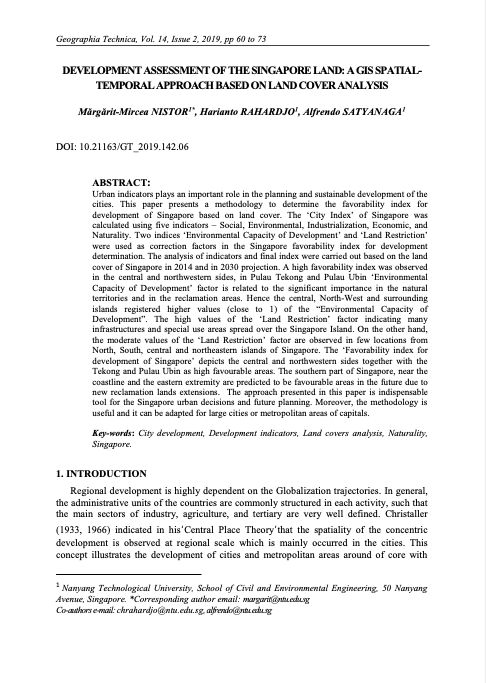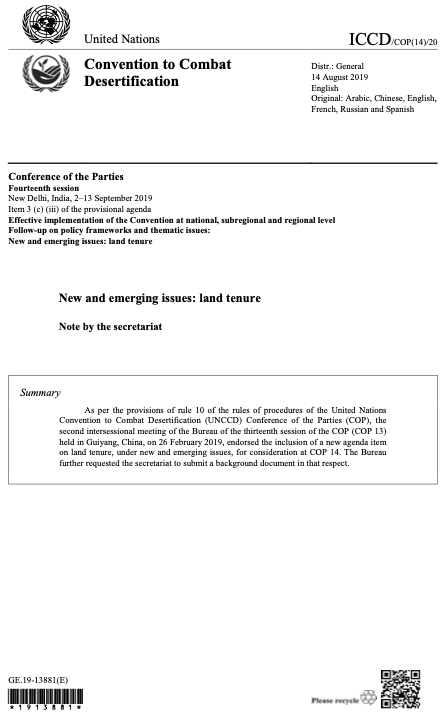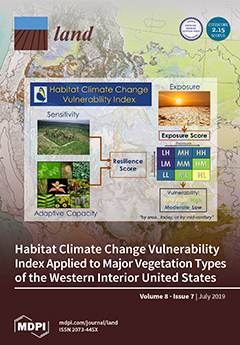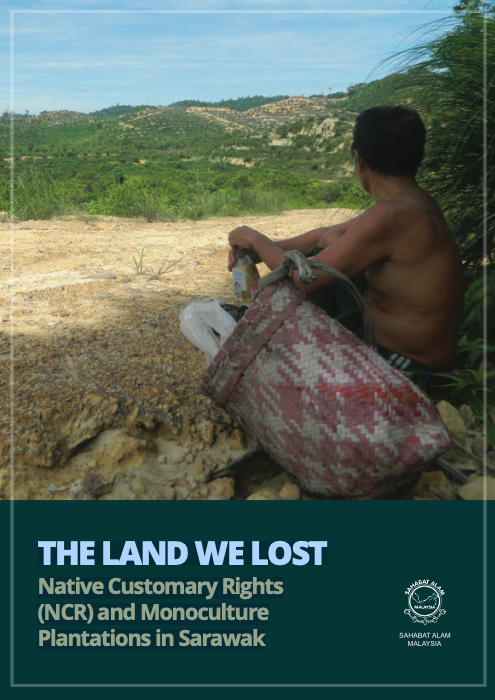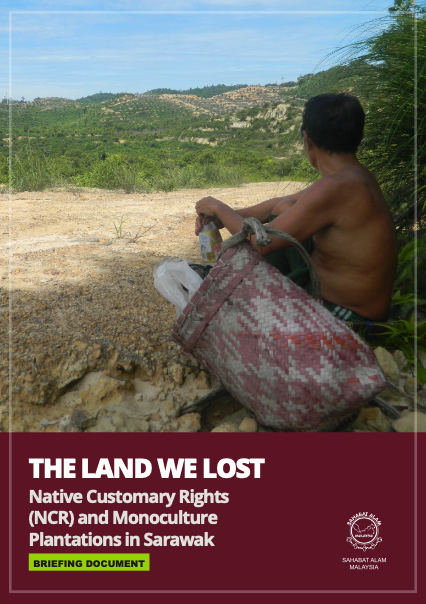GLII Briefing Note: Status of Land Indicators, SDGs Progress 2019 and Related Efforts
The 2030 Agenda for Sustainable Development provides a conceptual framework of 17 goals and 169 targets. An abundance of interlinkages exists between them. Land targets are core to achieving most of the SDGs including poverty eradication, food security, gender equality and empowerment of women, adequate housing and urban development, mitigating and adapting to climate change, reducing and preventing land degradation, and fostering peace and stability for prosperity.

